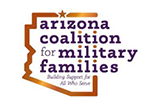They are volunteer leaders, who in partnership with clergy, bring military-connected people and veterans (and those who love them) together to offer practical and spiritual support, walking alongside each other in friendship and creating a sense of belonging. Refer people who have needs that you are unable to meet. Carry out projects and activities to pray for, honor and support service personnel, veterans and their families.
Ask clergy decision-makers how (if) your congregation currently supports military-connected people, if they would partner with (empower) you to establish/broaden this support. If clergy is supportive, contact the BeConnected Faith Network to provide any guidance you might require. Identify and gather military-connected members of your congregation and community. Use creative trial and error, patience, consistency and good listening skills to determine needs and preferences. You can then offer programming, social events and other support accordingly. It’s ideal to establish a name for the group and select a consistent time and place to meet.
- There is no cookie-cutter approach, it depends on the demographics and types of service of your group members. More often than not, like-minded people with similar experiences are most comfortable associating with others like them. For instance, combat veterans will talk more freely (if not only) with other combat veterans. Female veterans, military spouses and military moms are most likely to open up with people like them.
- Keep in close contact with clergy who know the congregation and identify prospective military ministry members. Introduce yourself, try to get to know them and invite them to participate.
- Most groups appreciate low-cost social activities that include food, babysitting services and doing things the group enjoys. From these relationships, mutual support often emerges like prayer, empathetic listening, encouragement and practical support like babysitting or home visits during childbirth/surgery.
- Community service activities are also usually well received by more mature groups.
- You may want to share literature resources and/or facilitate a curriculum-based study.
- You might consider pairing newly transitioning service members (or combat veterans) post-military service with successfully transitioned service members in the community.
- If you have families with deployed service members, write letters to the deployed military member, touch base with at-home family members providing simple acts of kindness and prayer. Host group send-off or welcome home events.
- Identify military caregivers in your community, get to know him/her and devise a way to support them.
- Host a military recognition event during military holidays.
- Adopt a local guard or reserve unit during Thanksgiving, Easter or Christmas. That usually means providing food.
- Work with grieving families, local funeral homes and military bases to host funeral tributes.
- Discuss sermons using guides provided by the Pastor for all small groups.
- Place military ministry flyers at your welcome center
- Post invitations on social media platforms and in church bulletins
- Use the congregation’s small group software opt-in program to obtain new members
- Wear military ball caps/T-shirts during services so people can identify primary contacts
- Visit affiliated pre-school to meet military parents
- Host a meet and greet
- Partner with clergy and other faith leaders in your place of worship to be on the lookout for and refer military families to the group.
- Recognize and pray for veterans at your normal service around Veterans Day. Staff a table afterward to collect contact information from interested veterans and those who support them.
- The key is to do what you say you are going to do.
- Keep showing up.
- Do not over promise and under deliver. The opposite works much better.
- Start and end on time.
- Honor people’s preferences.
- Keep confidences. Do not gossip.
- Be patient.
- Know your limitations.
- Be authentic. Be encouraging.
- Offer hope - not false hope.
- Keep in touch during the week sending messages of encouragement as appropriate.
Military people are very independent-minded most of the time. They do not ask for help easily (if at all). Some like to join groups, many prefer not to. Ask how you can support them and do it if you can. Know your limits and do not over-promise. Cultivate other supportive leaders willing to invite other military-connected people, host events at their homes, etc.
Don’t be discouraged if you start with very few people. Keep trying to connect with prospective members by taking interest in and developing a relationship with them.
Service members and veterans do not seek help easily and fairly easily tend to isolate themselves.
Support this person like any good friend would. Try to get them to talk about what is bothering him/her. Ask open-ended questions. Listen without judgement. Remind them that sharing our pain is the first step toward healing. The best way to support someone in emotional pain is to validate their suffering. You might say:
- “You’ve been struggling a lot lately.”
- “You’ve had a hard go of it.”
- “It takes a lot to go through what you’ve been through.”
- “You’ve endured a lot.”
- “I would guess you’re pretty weary with all that has happened.”
- “Tell me about the difficulties you’ve been having.”
- “Of all these difficulties, what is the hardest for you to deal with?”
- “It’s okay to cry.”
- “Your tears are safe here.”
- “Don’t choke down your tears. When you feel the lump in your throat,
- let it out through your tears.”
- “Count your blessings.”
- “You’ve got to look on the bright side.”
- “God never gives you more than you can handle.”
- “Something good will come out of this.”
- “You were just following orders.”
Signs and Symptoms of PTSD include:
- Feeling upset by things that remind you of what happened
- Having nightmares, vivid memories, or flashbacks of the event that make you feel like it’s happening all over again
- Feeling emotionally cut off from others
- Feeling numb or losing interest in things you used to care about
- Feeling constantly on guard
- Feeling irritated or having angry outbursts
- Having difficulty sleeping
- Having trouble concentrating
- Being jumpy or easily startled
- Frequently avoid places or things that remind them of what happened
- Consistently drink or use drugs to numb their feelings
- Consider harming themselves or others
- Start working all the time to occupy their mind
- Pull away from other people and become isolated
Find out how you can connect to support and resources, equip yourself to help others and strengthen your community's capacity to effectively serve military members, veterans & their families at Be Connected and Be Connected Faith Network.
Join the Be Connected Faith Network (BCFN) and the BCFN HIVE Channel.
Military children whose parents are on active duty, typically move every two to three years. Children of National Guard and Reserve members are often surrounded by children whose parents do not serve so when their parents deploy, they can feel alone. Knowing if/when parents are deploying and taking interest in them, spending time together and listening is helpful. Offering practical support like any friendly neighbor would, is important.
Military-connected children, like their parents, appreciate connection with others who have similar experiences and friendly support. There may be other educational and social-emotional challenges that military-connected children face that you will most likely be unable to influence. For additional information, visit Military Child.




